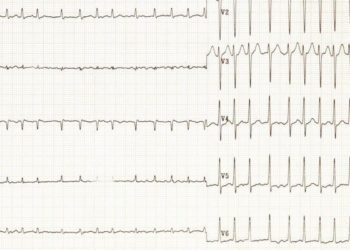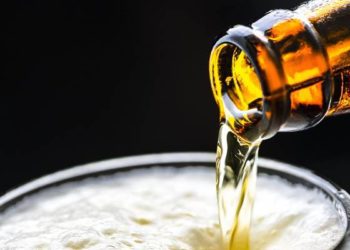Web-based intervention insufficient for reducing drinking among students
Image: PD
1. A brief web based intervention on alcohol consumption among university students decreased the number of alcoholic drinks per drinking episode.
2. A brief web based intervention on alcohol consumption among university students resulted in no effect on days of drinking per month, volume of alcohol consumed, consequences related to academics, binge drinking, or heavy drinking.
Evidence Rating Level: 1 (Excellent)
Study Rundown: Excessive alcohol consumption among young people is an important public health concern. Several strategies have been employed and studied to try to reduce the prevalence of these behaviors. This study randomized 3,422 students across 7 universities in New Zealand. All participants completed a series of validated surveys. Individuals in the intervention group received personalized feedback from the surveys including information on blood alcohol concentration, consequences of alcohol consumption, and resources for further information. The control group completed the surveys but did not receive any feedback. Five months after the initial surveys, all participants were given surveys to assess behavior related to alcohol consumption. Individuals in the intervention group reported fewer drinks per drinking occasion (4 vs. 5, p=0.005). There were no differences in the other outcomes measured. Strengths of this study are the use of validated surveys and enrollment of individuals in different universities, which has never been done. A weakness of this study is the use of self-reported data.
Click to read the study in JAMA
Relevant Reading: Social norms interventions to reduce alcohol misuse in University or College students
In-Depth [randomized controlled trial]: This study included 3,422 students enrolled in 7 New Zealand universities who took validated surveys about alcohol consumption. A group of individuals was randomized to receive personalized feedback based on the surveys, and the control group took the surveys without feedback. Five months later, 1,437 (84%) individuals in the intervention group and 1,413 (83%) individuals in the control group responded to a survey assessing six alcohol consumption behavior outcomes. Individuals in the intervention group reported fewer drinks per drinking occasion (4 vs. 5, RR=0.93, 99.17% CI 0.86-1.00, p=0.005). There was no difference in days of drinking per month (RR= 0.95, 99.17% CI 0.88-1.33), volume consumed (RR=0.95, 99.17% CI 0.81-1.10), consequences related to academic role expectations score (RR=0.91 99.17% CI 0.76-1.08), exceeded guidelines for binge drinking (OR=0.84, 99.17% CI 0/67-1.05), exceeded guidelines for heavy drinking (OR=0.77, 99.17% CI 0.56-1.05).
More from this author: Risk-reduction counseling with HIV testing may not decrease rates of sexually transmitted infections, Autoantibodies may precede symptom onset in Sjögren’s Syndrome, Varenicline and buproprion more effective than varenicline alone for tobacco abstinence, Peer based health education program linked to reduced waist circumference, No overall change in the prevalence of obesity in the United States between 2003 and 2012
©2012-2014 2minutemedicine.com. All rights reserved. No works may be reproduced without expressed written consent from 2minutemedicine.com. Disclaimer: We present factual information directly from peer reviewed medical journals. No post should be construed as medical advice and is not intended as such by the authors, editors, staff or by 2minutemedicine.com. PLEASE SEE A HEALTHCARE PROVIDER IN YOUR AREA IF YOU SEEK MEDICAL ADVICE OF ANY SORT.







